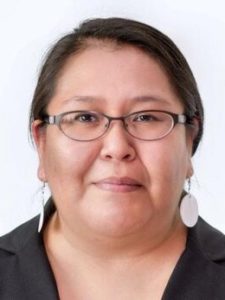Originally presented on
December 1 & 2, 2021
Materials
• Recording
• Presentation slides (full-size slides)
• Presentation slides (6 per page)
*Training certificates are only available following live trainings or completion of self-paced courses. A certificate will not be provided for review of these materials.
Childhood Exposure to Trauma: Tribal Communities
In this introductory course about trauma and resilience participants will learn to observe the world through a trauma lens. The course provides an overview of research on trauma and discusses its relevance for American Indian/Alaska Native people and tribal communities. Participants will learn the varying types of trauma people experience, the impacts of trauma on the developing brain, and how trauma influences emotions, thinking, and behavior. The heart of this training is to create power through naming experiences and share strategies to promote individual and collective resilience within tribal communities to counter the effects of trauma.
Learners will:
- Define key trauma terms and concepts
- Understand the concept of historical trauma in tribal communities
- Understand basic findings of trauma research
- Identify connections between trauma and child development
- Describe protective factors that build resilience
Who should attend: Staff of family resource centers, child abuse prevention councils (CAPCs), and other family-serving organizations who are interested in understanding the impacts of trauma and strategies to build resilience. This training applies to all people, professions, and systems and is useful to create a shared language and understanding of trauma and resilience.
Supplemental Materials
• Discussion Scenarios
• Original ACE Questionnaire (October 2006)
• Incidence of Adversity by Type (Original ACEs study)
• Immediate and Delayed Reactions to Trauma
• Health Connections Special: ACEs – Adverse Childhood Experiences (28:30), Northern California Public Media, August 31, 2017
• InBrief: The Science of Resilience (2:29), Center on the Developing Child, Harvard University, April 22, 2015
National Native Children’s Trauma Center (NNCTC)
Visit the Resources section of the NNCTC website for additional webinars on trauma and resilience, as well as a variety of related resources.
Dartmouth Student Wellness Center
Access guided audio recordings of PMR, deep breathing, and other self-regulation activities.
Veronica Willeto DeCrane
Training & Technical Assistance Manager
National Native Children’s Trauma Center (NNCTC)

Veronica Willeto DeCrane is Diné (Navajo), of the Many Hogans Clan and born for the Mexican Clan. She has extensive experience providing training and technical assistance to reservation schools and other agencies, supporting school turnaround, parent and community engagement, youth leadership and development, after-school programs, culturally responsive education, systems change, and the Positive Behavioral Interventions and Supports (PBIS) and Multi-Tiered System of Support (MTSS) frameworks. In her current role she manages a project focused on trauma-informed care within tribal juvenile justice systems and supports the NNCTC’s school-based efforts.
Kimee Wind-Hummingbird
Training and Technical Assistance Specialist
National Native Children’s Trauma Center (NNCTC)
Kimee Wind-Hummingbird, a citizen of the Muscogee (Creek) Nation with Cherokee descendancy, joined the NNCTC in 2021 after 22 years serving youth and families in the child and family programs of her two tribal nations. In addition to extensive supervisory experience and expertise on the Indian Child Welfare Act, she has trained and consulted with both tribal and non-tribal stakeholders, including judges, attorneys, state child welfare agencies, tribal child welfare agencies, and other service providers. Her focus across all of her professional activities has been keeping indigenous families connected to their tribe, culture, and community.

